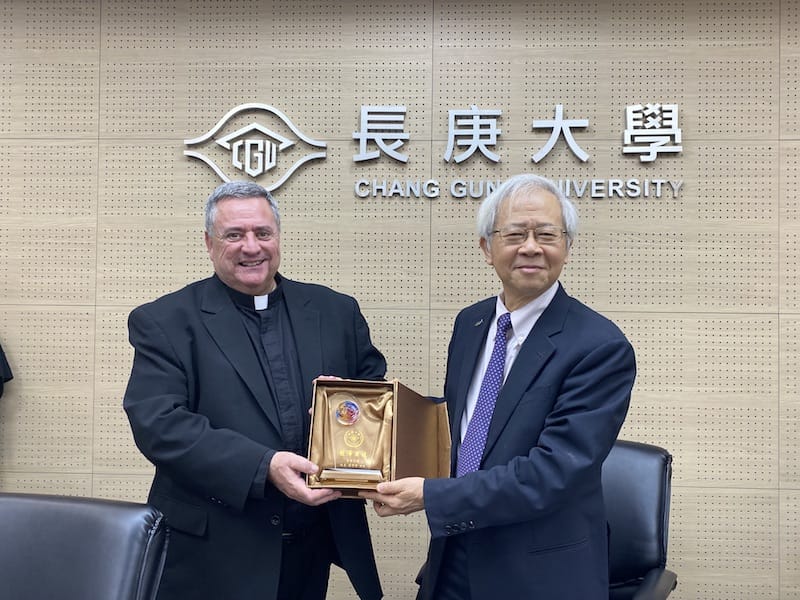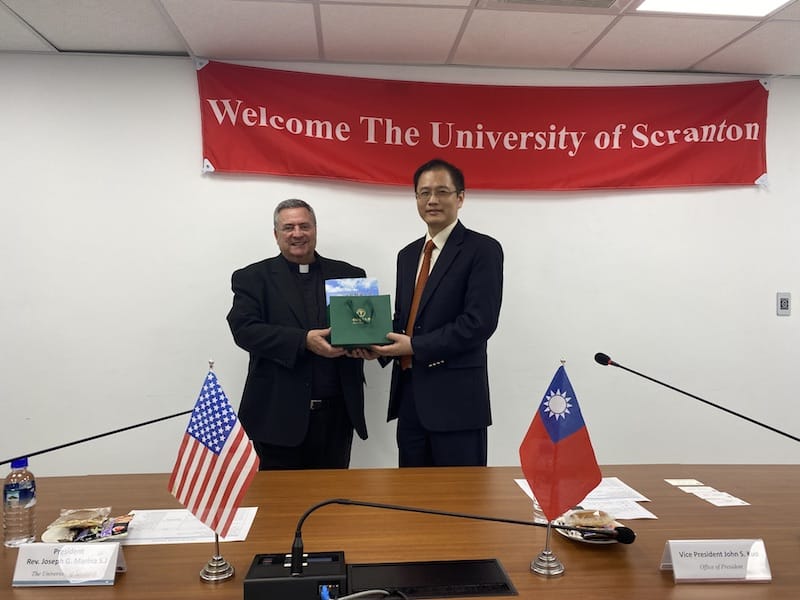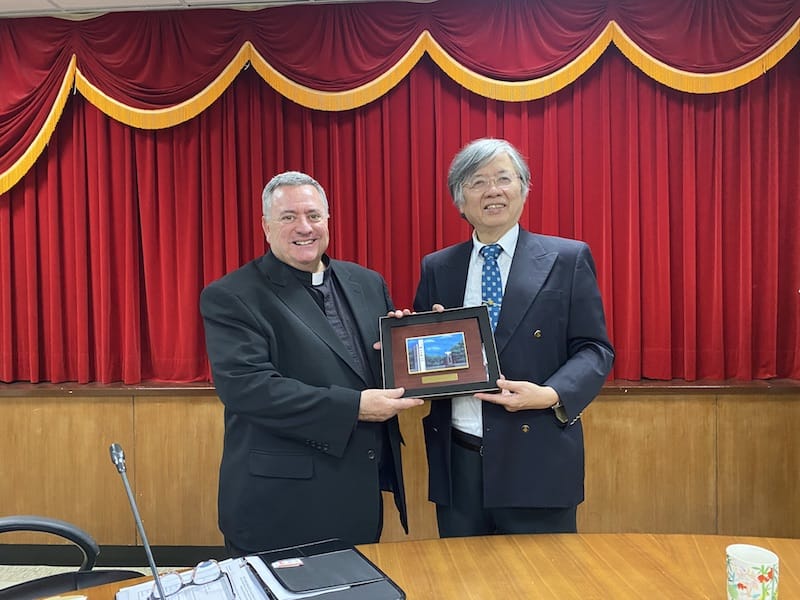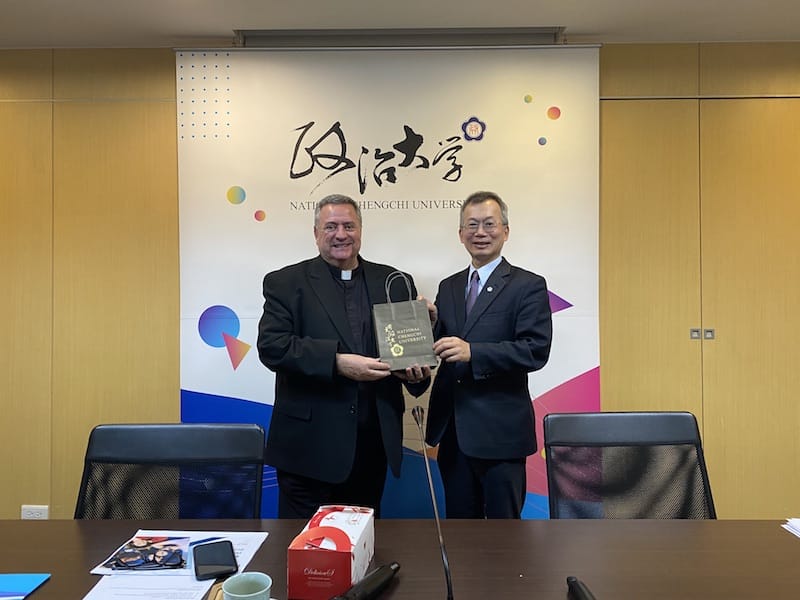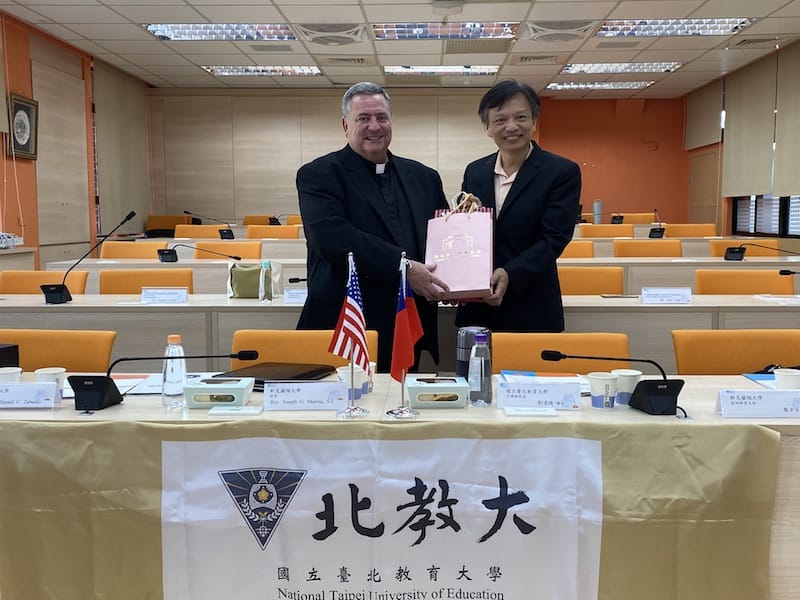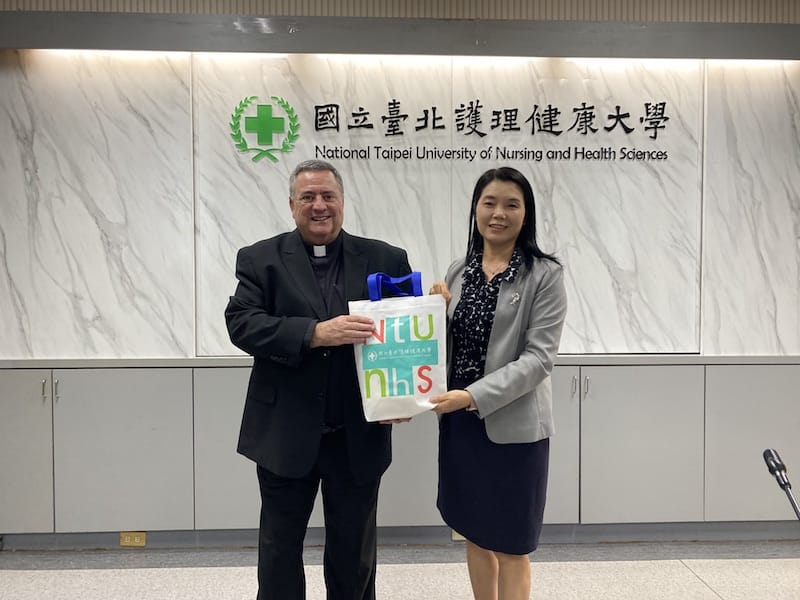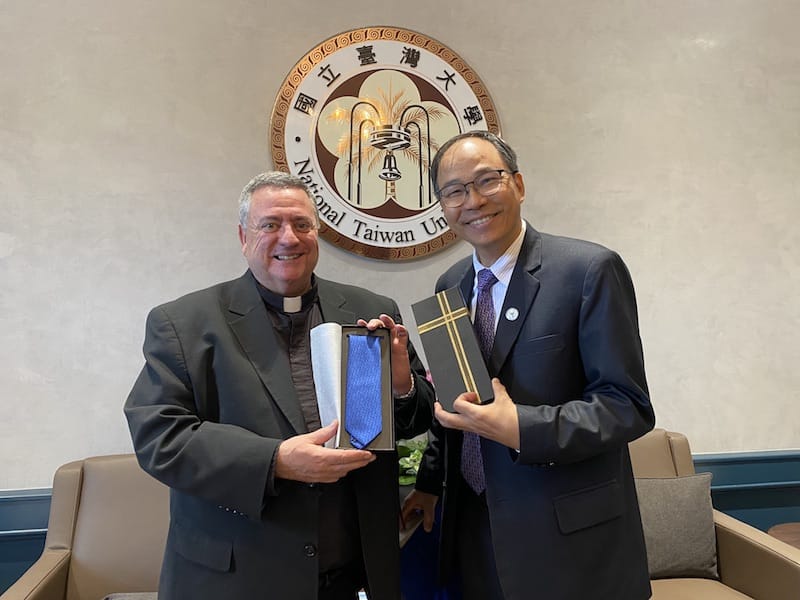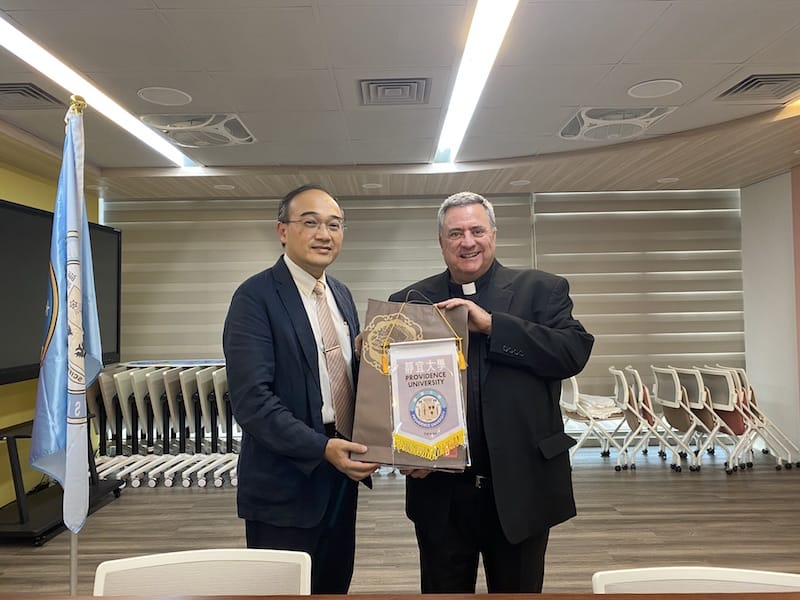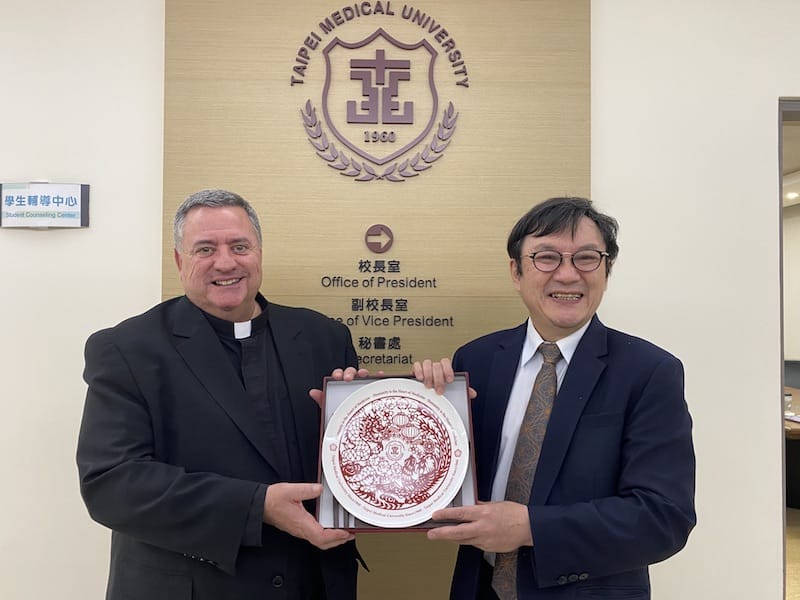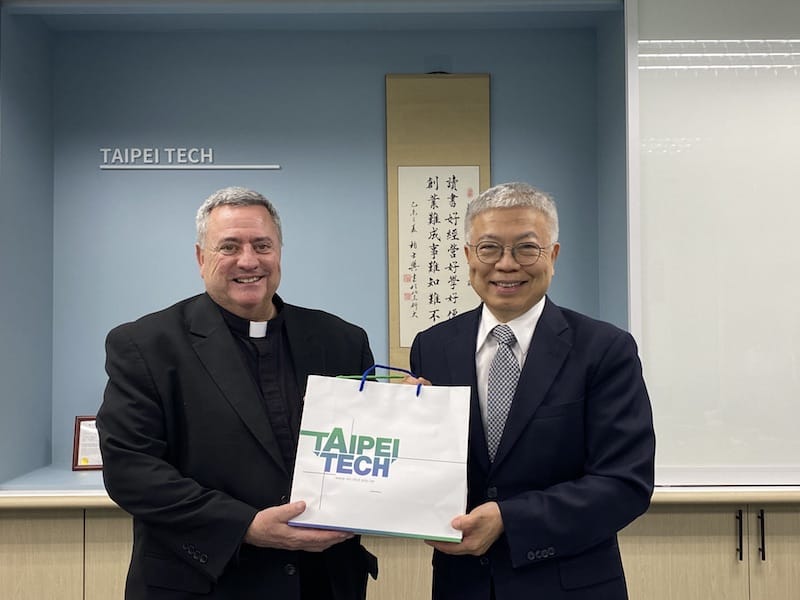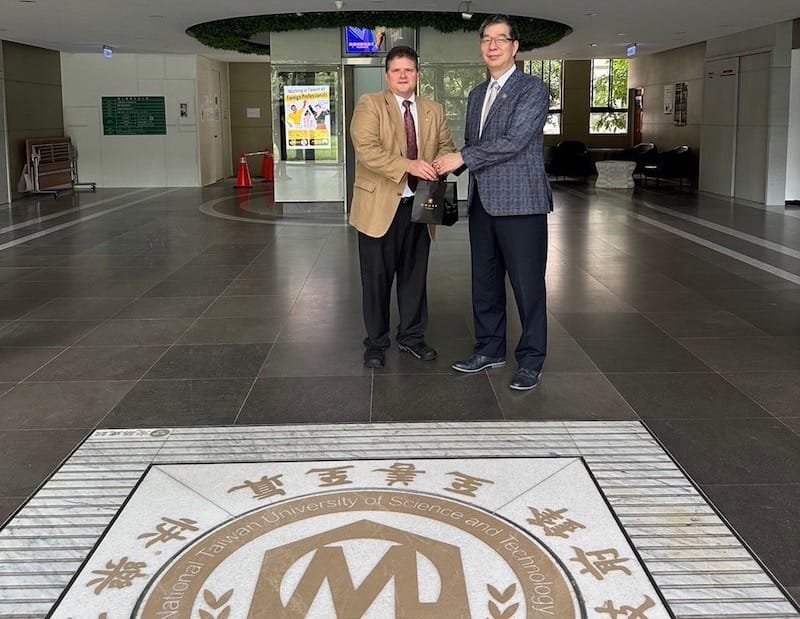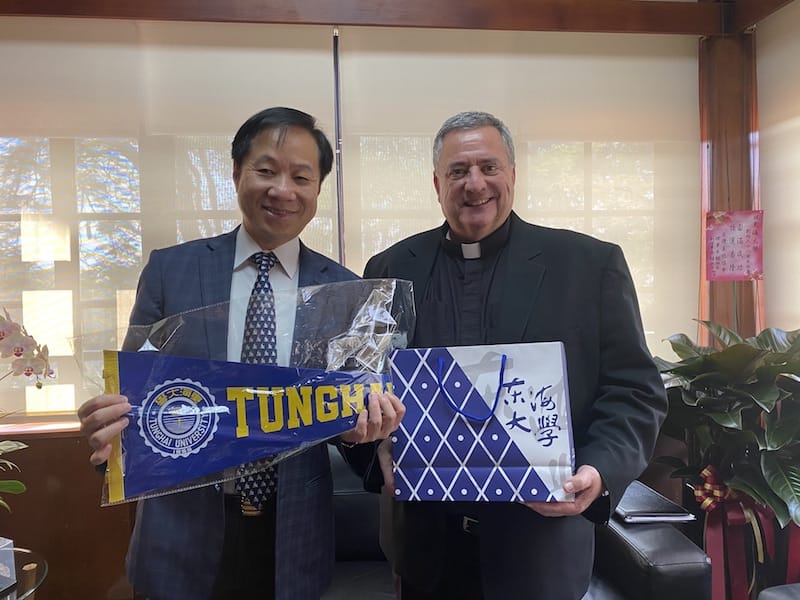Scranton President Visits Universities in Taiwan
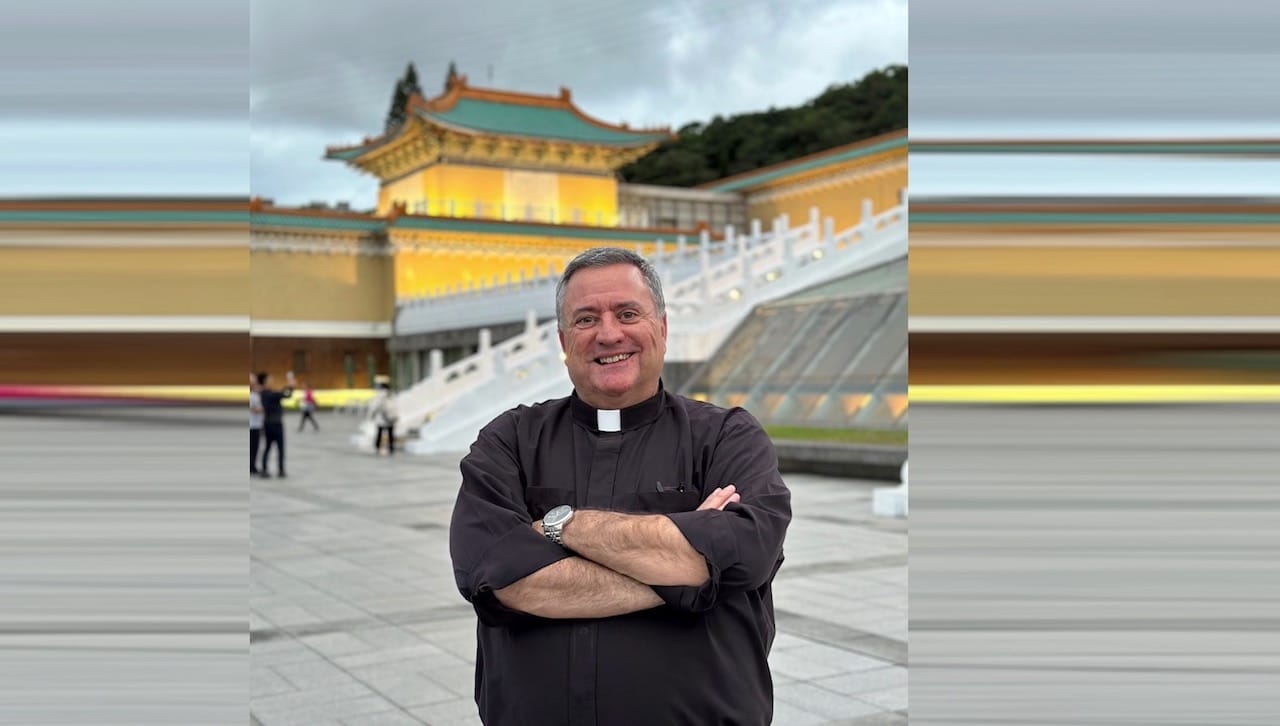
A University of Scranton delegation led by President, Rev. Joseph Marina, S.J., explored collaboration possibilities with presidents and senior officials at a dozen universities in Taiwan during his visit there in November. The trip was sponsored by Taiwan’s Ministry of Education in cooperation with the Taipei Economic and Cultural Office (TECO) in New York.
Together with Ann Pang-White, Ph.D., professor of philosophy and director of Asian Studies at the University, and Gerry Zaboski, senior vice president for the Office of the President, Father Marina discussed options for mutually beneficial partnerships, including degree collaborations, or collaborations to advance the respective missions of the schools.
“We are deeply grateful to the Ministry of Education of Taiwan for their outstanding support throughout the week,” said Father Marina. “With their help, we had excellent and productive discussions with every school we visited. We also gained a deeper appreciation for the people of Taiwan and their rich history and culture.”
The itinerary included a meeting with Nicole Yen-Yi Lee, director-general, Department of International and Cross-strait Education, at the Ministry of Education, Taipei, Taiwan.
The first university on the itinerary was Fu Jen Catholic University, a Jesuit university in Taiwan. that signed an articulation agreement for a 4+1 MBA degree partnership with The University of Scranton last year. Father Mariana met with Han-Sun Chiang, M.D., Ph.D., president, other Fu Jen administrators and the first students enrolled in the 4+1 partnership.
Throughout the remainder of the trip, Father Marina met with Ming-Je Tang, Ph.D., president, Chang Gung University; John S. Kuo, M.D., Ph.D., vice president, senior consultant neurosurgeon, China Medical University; Tsai-Yen Li, Ph.D., president and professor of computer science, National Chengchi University; Yuan-Chen Liu, Ph.D., vice president, dean for academic affairs and distinguished professor of Computer Science, National Taipei University of Education; Shu-Fang (Vivienne) Wu, Ph.D., president, National Taipei University of Nursing and Health Sciences; Sea-fue Wang, Ph.D., president and chair professor, Materials and Mineral Resources Engineering, National Taipei University of Technology (Taipei Tech); Stone Shih-Torng Ding, Ph.D., executive vice president and director of the Center for Bilingual Education and distinguished professor of Animal Science and Technology, National Taiwan University; Chao-Hsun Yang, Ph.D., executive vice president and distinguished professor of Cosmetic Science, Providence University; Mai-Szu Wu, M.D., president and professor of nephrology, internal medicine, Taipei Medical University; and Kuo-En Chang, Ph.D., president, Tunghai University.
During the visit, Dr. Pang-White and Gerry Zaboski met with Nai-Wei Lo, Ph.D., dean of the School of Management at National Taiwan University of Science and Technology (Taiwan Tech).
The University’s long-established partnership with Taiwan began in 2010 with several divisions in the Taipei Economic and Cultural Office (TECO) in New York, including the Foreign Affairs Division, the Education Division (Ministry of Education), the Government Information Office and the Council for Cultural Affairs (now combined to form the new Ministry of Culture).
Programming established through the University’s international partnership with the Education Division of TECO-New York and Taiwan Ministry of Education includes university-level faculty- and student-exchange programs. Through the partnership with the Taiwan Ministry of Culture, the University has hosted numerous programs in Scranton, including performances by the Taiwan Bangzi Opera Company, the Chai Found Music Workshop and the Taiyuan Puppet Theater, in addition to hosting several lectures and film festivals with meet the author and director discussions.
In 2014, the University became the only higher education institution in the world to receive a replica of the Kinmen Peace Bell. The gift, on display in the atrium of the Loyola Science Center, was given as a gesture from Taiwan in honor of the University’s charter membership in the Taiwan Academy and its success with its Taiwanese cultural programming and Asian Studies program.
Taiwanese Ceremonial Ritual of the Gift Exchange
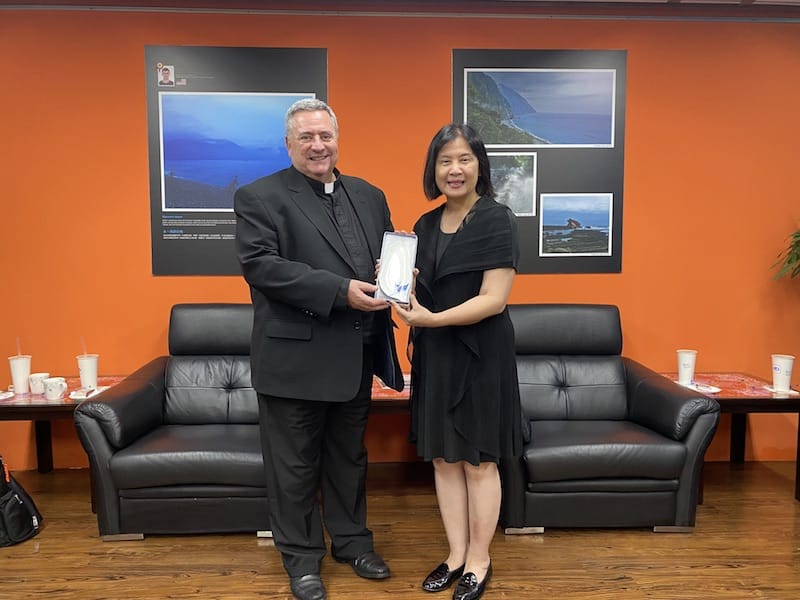
The Taiwanese tradition of honoring guests with a formal exchange of gifts dates back thousands of years. Meeting agendas at each school visited included a “gift exchange.”
“Taiwanese culture regards gift-giving as an art that contributes to social harmony and friendly human relations, a symbolic gesture that honors both the guests and the host,” explained Dr. Pang-White of the tradition that dates back thousands of years. “When visiting relatives or friends that you have not seen for a while or visiting someone significant or more senior than you, presenting a gift is quite usual. In meeting someone in business for the first time especially, a gift presentation is expected, and, very often, a gift exchange is included on meeting agendas.”
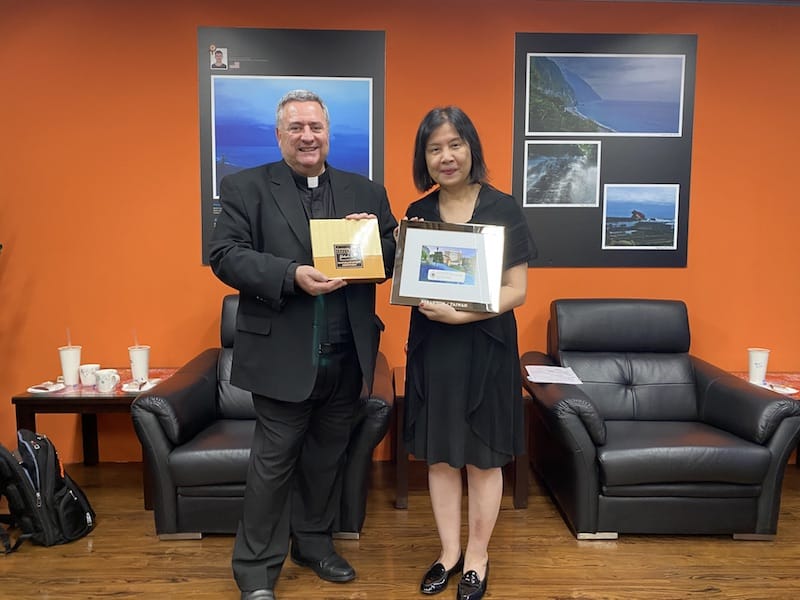
At the gift exchanges, Father Marina presented gifts from the University that included a framed campus photo, a hard-cover book of the history of The University of Scranton and a sampling of Gertrude Hawk chocolates. Gifts presented to Father Marina included ceremonial plaques and plates and commemorative banners.
“Presenting a gift and a gift exchange is considered a ceremonial ritual. This custom was passed down for thousands of years dated back to the Book of Rituals/Rites, composed around the first century, regarding how to honor a guest and visiting a host – but the practice began several hundred years earlier than the first century,” said Dr. Pang-White. “Gift-giving is considered a gesture of respect and hospitality and a symbol of gratitude. It is the spiritual significance of gift-giving that matters, not how expensive the gift is.”
A photo gallery of the gift exchanges with universities in Taiwan can be seen below.


